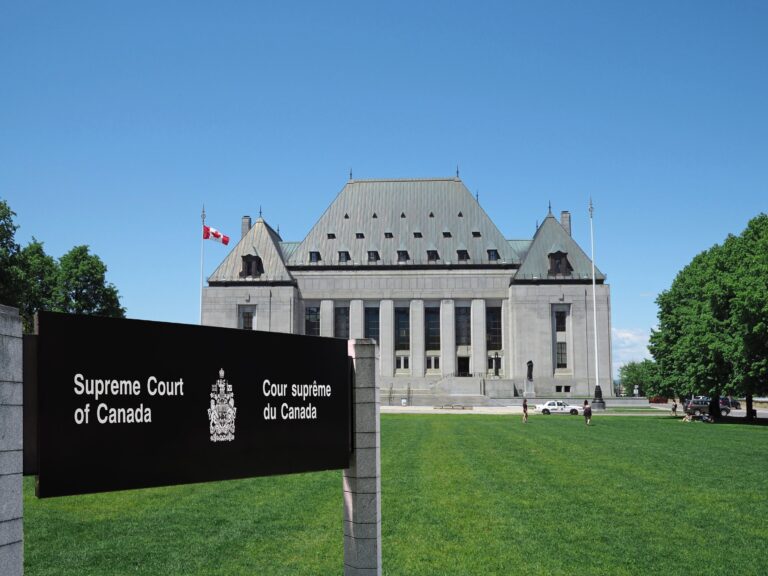WINNIPEG FREE PRESS COLUMN: Supreme Court decision will hurt patients

If a patient in Quebec needs breast cancer surgery, a hip operation or any other health services, they have two choices: wait for the government’s health-care system to provide it or pay for the operation at a local private clinic.
The Supreme Court of Canada, however, recently denied that same choice to the rest of the country.
In every other province, patients have no choice but to wait for the government to provide medically necessary services or travel outside the province for treatment. This double standard — created by the Supreme Court — makes no sense. It’s not only inconvenient for patients, it will cause harm to many — perhaps even costing some their lives.
Ironically enough, it was a Supreme Court decision from 2005 that opened up private health-care options in Quebec. The Chaoulli v Quebec case famously concluded: “Access to a waiting list is not access to health care.” The courts ruled that the Quebec government can’t operate a monopoly on health services while also making patients wait unreasonably long periods of time for surgery. This decision only applied to Quebec because the courts ruled that the ban on private care violated the Quebec Charter of Human Rights and Freedoms.
Since that time, a British Columbia doctor, Brian Day, spent 14 years fighting for B.C. patients to receive the same rights the courts granted to Quebecers. Despite his long and costly battle, the Supreme Court refused to even listen to his case. It didn’t even grant him the courtesy of an explanation.
Thus, the Supreme Court has granted one set of health-care rights for Quebecers, and a different set for the rest of the country.
Readers should note that countries with better performing health-care systems — Sweden, Norway, Australia and France to name a few — allow patients a choice: use the public system or pay for services at a private clinic. It’s no coincidence that these same countries also have shorter wait times — private options take pressure off their public systems.
For Ontario breast cancer patients, having this choice is important. The Ottawa Citizen ran an article recently that examined why more and more Ontario cancer patients were travelling to Quebec to pay for private surgery. It turns out they were concerned about dying as the government was taking too long to provide surgery. Go figure.
Dr. Jean Seely, a radiologist at The Ottawa Hospital, told the Ottawa Citizen that the delays in Ontario, “will have an impact on significant loss of lives to breast cancer until they are addressed.”
Having more choice means patients can also avoid waiting in chronic pain for a year or two while the state gets around to providing services like hip and knee surgery.
Of course, there are opponents to giving patients a choice between public and private care. Their most common argument is that private clinics would steal staff from the public system. It’s a strange argument to suggest that other nations can figure out how to prevent this problem, but Canadians cannot.
In the United Kingdom, for instance, the government caps how much a doctor can earn at private clinics to no more than 10 per cent of gross salary. This option could help ensure stability until Canadian universities and colleges train more health-care workers. Post-secondary institutions could prioritize training such staff, perhaps by redirecting money away from degrees with low employment rates after graduation.
Private clinics could also recruit some of the thousands of Canadian health care workers who live in Canada but commute to the U.S. for work (or are thinking of moving south). New research by SecondStreet.org shows that nearly 2,000 Ontario nurses regularly commute to work in Michigan alone.
To be sure, allowing patients more choice won’t solve all our country’s health-care woes. But it will take pressure off our struggling system, while helping countless patients get the care they need. It’s not acceptable that the Supreme Court only thinks Quebecers deserve this option.
Colin Craig is the president of SecondStreet.org, a public policy think tank.
This column was published in The Winnipeg Free Press on May 12, 2023.
You can help us continue to research and tell stories about this issue by making a donation or sharing this content with your friends. Be sure to sign up for our updates too!


